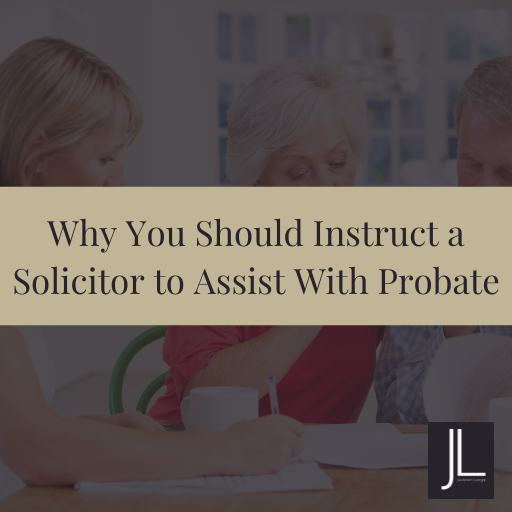
Probate involves dealing with the property, money and possessions a person had at the time of their death. It is a legal process, and doing so is known as estate administration. Estate administration also involves settling any outstanding debts, collecting any owed monies and dividing the assets, finances and property among the beneficiaries (people set to inherit from the estate).
The person responsible for distributing a deceased person’s estate is known as an executor (when a person was allocated in a Will) or an administrator (appointed according to the rules of intestacy where there is no Will or the Will is invalid). Collectively, executors and administrators are known as personal representatives (PRs).
In many cases, the probate process is left to a person with limited experience of what is involved, and, due to the associated complexities, such as the time, paperwork and expertise, there is ample scope for issues to arise. Therefore, seeking the advice and guidance of a knowledgeable legal professional is invaluable.
In this article, Jackson Longe’s estate administration solicitors consider some common mistakes associated with the probate process and highlight how a lawyer can assist.
1. Acting hastily.
Often, executors can face pressure from beneficiaries of a Will to distribute assets as soon as possible. However, distributing assets too early, before the necessary tax and legal paperwork has been completed, can lead to repercussions.
In doing so, an executor may lose track of who has what and how the remaining funds should be distributed as a result of the early loss of money.
PRs can be held personally liable for such mistakes. If, for example, there is not enough money left in the estate to cover unexpected costs or liabilities, they would be responsible for payment.
Appointing a solicitor for estate administration can reduce personal liability. PRs are entitled to have the costs associated with appointing a legal professional paid for by the estate.
Find out how long the probate process typically takes here.
2. Insufficient or inadequate record keeping.
As part of their duties, executors are legally required to provide evidence of all financial transactions made to and from the estate. This includes producing written confirmation that beneficiaries received their share of the estate, receipts showing debts paid, and any records of expenses from dealing with the estate.
Failing to keep a comprehensive record of all financial transactions, no matter how small is a common oversight but can result in significant problems.
3. Misinterpretation of the Will.
People often update their Will throughout their lifetime, in line with changes in their life. Sometimes, they may do so without telling anyone or leaving relevant instructions directing to the most up-to-date version.
Locating the most relevant version of a Will is paramount as PRs that execute probate on an invalid or incorrect Will risk catalysing potential challenges.
In addition, any misinterpretations of a Will can prove costly, particularly where legal jargon or phrasing has been misunderstood. Ambiguity about a Will’s contents can be exacerbated by any codicils (amendments), unclear instructions or unforeseen circumstances (such as the death of a beneficiary).
Seeking clarification from a legal professional if you are uncertain about the contents of a Will as soon as possible is vital. Early intervention could save considerable time and money.
4. Not locating beneficiaries.
As an executor, you are responsible for taking all reasonable steps to locate beneficiaries named in a Will. For example, in some cases, a person may leave gifts to a group of beneficiaries that are not individually named. This might be presented as ‘my grandchildren’, or similar. You may be personally liable for their loss if all beneficiaries are not located.
5. Addressing assets and liabilities.
Very often, people keep their debts private, meaning that it can be challenging for executors to locate and settle said liabilities upon death. This is crucial as it ensures that accurate figures are submitted to HM Revenue & Customs (HMRC) and protects you as the executor from future claims from creditors and beneficiaries.
Probate Solicitors Richmond
Our team of experienced probate solicitors at Jackson Longe can provide comprehensive assistance with all probate matters.
This might include obtaining a Grant of Representation or handling estate administration. We work closely with you, offering professional legal guidance and addressing inquiries you may have
To speak to our specialists today, please call 0208 332 2069, email info@jacksonlonge.com or fill in this enquiry form.